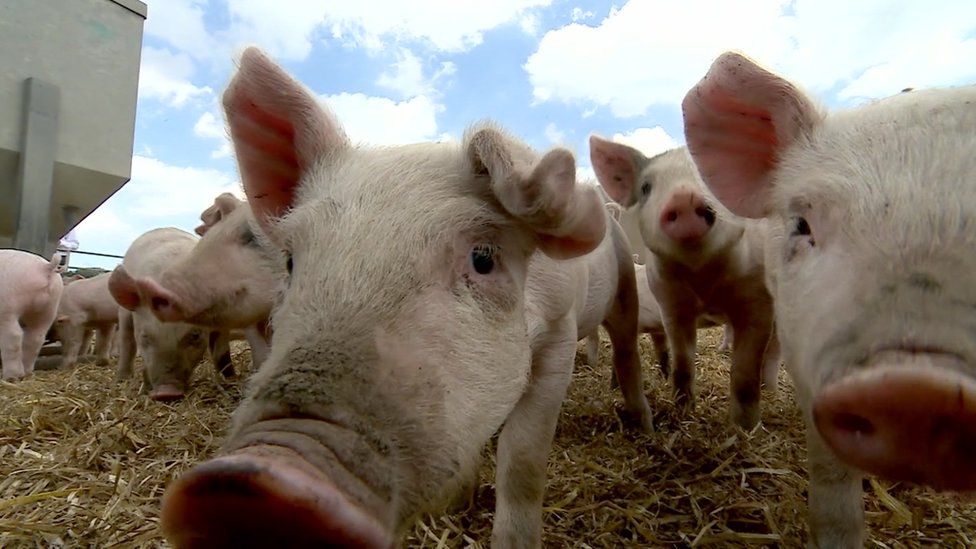Therapy could stop superbugs on farms
- Published

Researchers at Leicester University have shown that it might be possible to develop an alternative to antibiotics for treating diseases in pigs.
They have identified a range of viruses, called bacteriophages, that can be used to kill common pig infections.
The aim is to reduce the risk of antibiotic resistant bacteria emerging on farms that could also infect humans.
If trials in pigs work, the new therapy could be extended to treat people.
Prof Martha Clokie presented her interim results to a pig industry meeting in Solihull. She told BBC News that the early results indicated that phage therapy could be "completely transformative for human health".
"There are many infections that we just can't treat with antibiotics because they have become resistant to them. So using the phage therapy for specific diseases could change the way we treat infection. It could give us a whole new armoury."
Scientists have been trying to develop phage treatments for more than a century but they have mostly proved to be unreliable. But Prof Clokie has found more precise ways of isolating phages and assessing their effectiveness.
The research has been funded by the Agriculture & Horticulture Development Board which is responding to concerns about the possibility of so called superbugs developing in farm animals and entering the food chain. Charlotte Evans is leading the project for AHDB.
"Pig producers are responding to a pig health and welfare point of view and also reacting to consumer expectations, to help make sure we are being responsible about our antibiotic usage and ensure we safeguard them for the future," she said.
In the UK, 40% of all antibiotics are used to treat animals. They are the same as those used to treat people.
A review published last year by Lord Jim O'Neil called for reductions in the unnecessary use of antibiotics in agriculture, especially those that were "highly critical" to human health.
Prof Clokie has shown that phage therapy can in principle offer a viable alternative to antibiotics.
Phages occur in nature and are the natural enemy of many infectious agents. There are many phages, each of which is specific to different infectious bugs. The phages home in on these agents like a guided missile. Once they find their target, they latch on to them and inject their DNA into the bug rendering it harmless.
Like all viruses, they reproduce inside the infectious bug and these new phages go on to hunt other infections
Prof Clokie and her team have identified a range of disease-killing phages, including one that disables a salmonella bug that infects pigs. Her team has shown that it works in the lab and the scientists have also developed a powdered form of the phage which remains active. This is an important step because it enables the researchers to add the phage to pig feed and see if it works in practice.
The team plans to begin trials later this year.
If the approach is found to be effective, other phage treatments could be developed for a range of animal diseases. It would also speed the development of phage treatments for people.
Follow Pallab on Twitter.
- Published19 May 2016